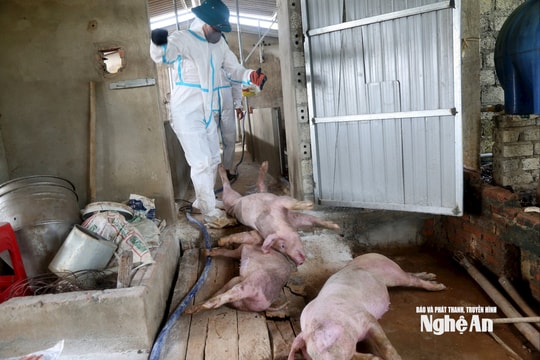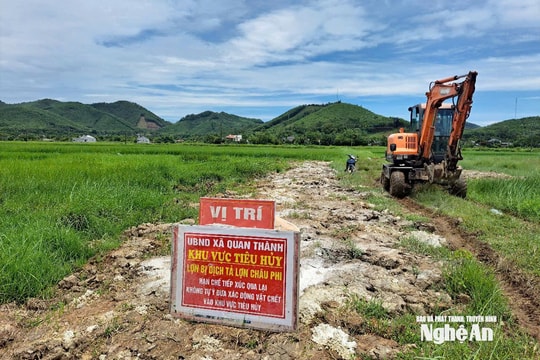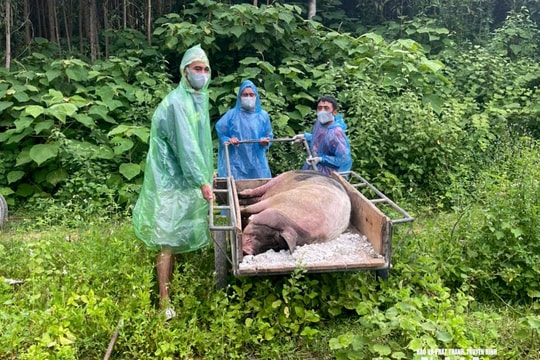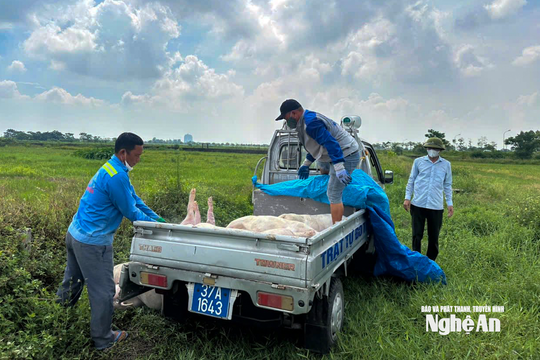Nghe An people look for clean pigs to use
(Baonghean.vn) - An outbreak of African swine fever has occurred in Quynh Luu district, causing consumers to be somewhat wary of pork. However, due to the daily need for pork, people in some rural areas of Nghe An choose clean pigs raised by the people to "slaughter" for daily use.
Don't turn your back on pork
In the face of the African swine fever epidemic that has appeared in Quynh My commune, Quynh Luu district (Nghe An), the demand for pork among people in some localities in the province is somewhat limited. However, that does not mean that people "turn their backs" on pork, many places together "touch clean pigs" to serve daily meals.
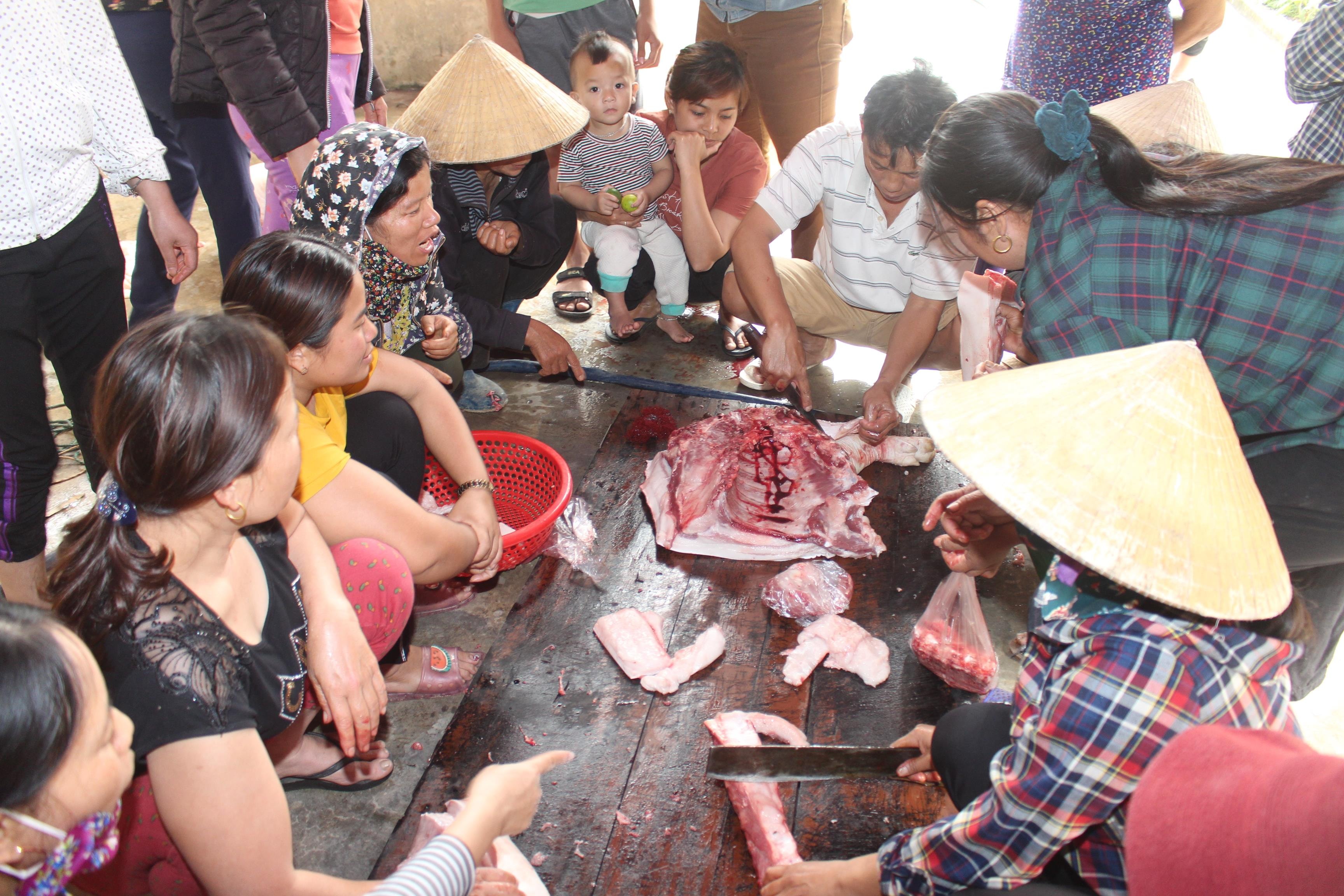 |
| In many rural areas of Nghe An, people share clean pigs for slaughter. Photo: Viet Hung |
At the home of Ms. Nguyen Thi Xuan in Quynh Nghia commune (Quynh Luu), although this is not a slaughterhouse, neighbors gathered to buy meat upon hearing that the family was slaughtering her pig.
Ms. Xuan said that due to the limited land area of the family, they only raise 2-3 pigs/year. The family raises them for 8 months until they reach a weight of nearly 100 kg before slaughtering them.
With the mentality of choosing clean food and clear origin, although the price is higher than the market, people still accept to buy it for use. According to research in the market, lean pork costs from 90,000 - 100,000 VND/kg, while clean pork raised at home costs from 120,000 - 13,000 VND/kg (20,000 - 30,000 VND/kg higher).
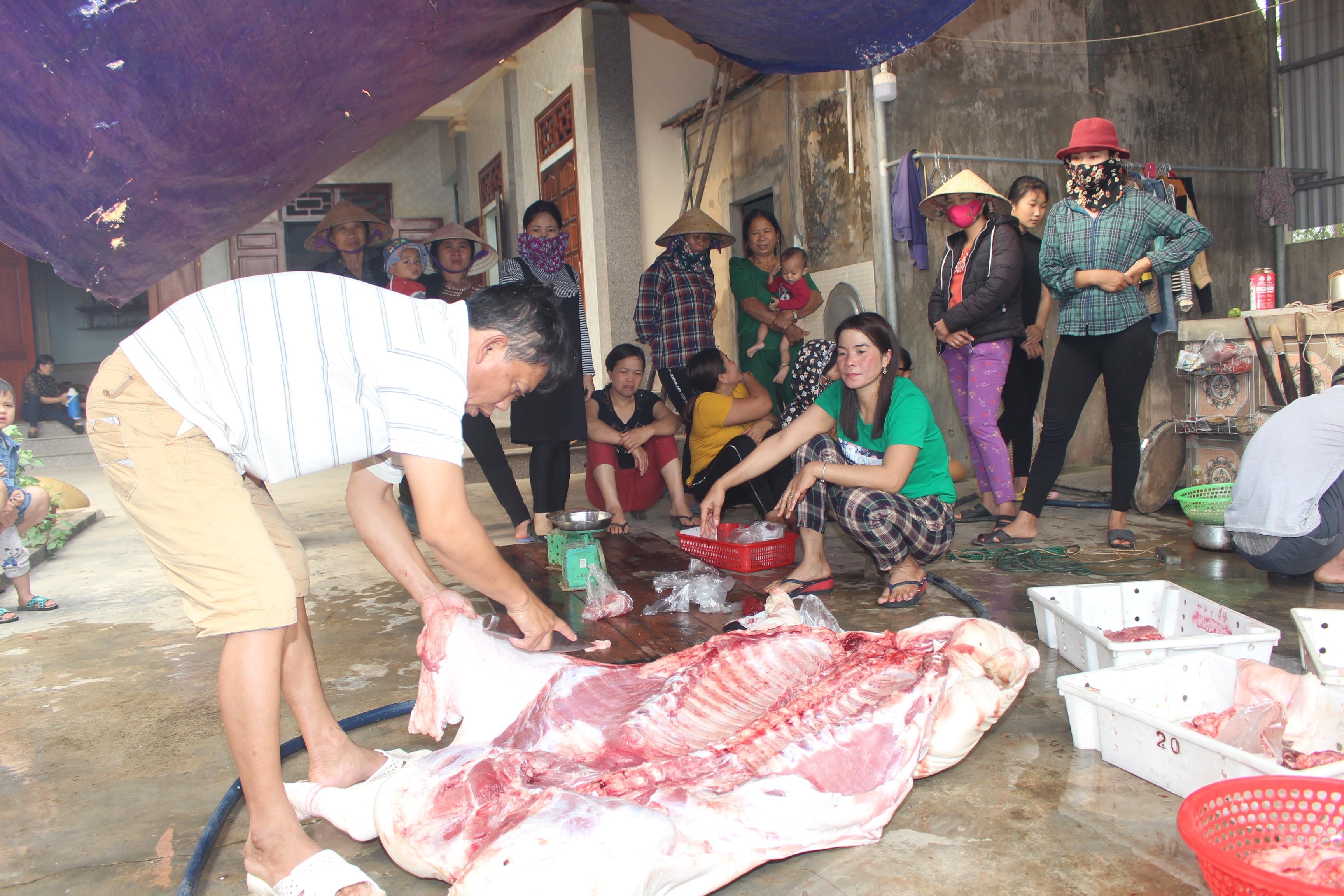 |
| Consumers are not turning their backs on pork in the face of the spreading African swine fever. Photo: Xuan Hoang. |
These days, "clean pork" is popular among people in rural areas such as Quynh Luu, Dien Chau, Nghia Dan... for daily meals.
Mr. Nguyen Minh Ha, a resident of Dien Hoang commune (Dien Chau) said that, in response to the need for clean pork from his neighbors, he organized a "pig sale" by contacting small-scale farmers in the area to place orders.
"Many families want to eat clean pork, but buying the whole pig is expensive and they can't finish it all, so it's most reasonable for families to resell it," Mr. Ha added.
People in other districts such as Yen Thanh, Tuong Duong... are not turning their backs on pork at this time. However, the most secure solution is to slaughter pigs together to share the meat for daily cooking.
Ms. Nguyen Thi Hoi in Phan Dang Luu hamlet, Nam Thanh commune (Yen Thanh) used surplus food from agricultural by-products to raise 3 pigs, each weighing 70 kg, in 6 months. Due to the African swine fever epidemic, traders caught pigs at cheap prices, so she invited relatives and neighbors to help her slaughter pigs. She slaughtered one pig every week and all the pork was sold.
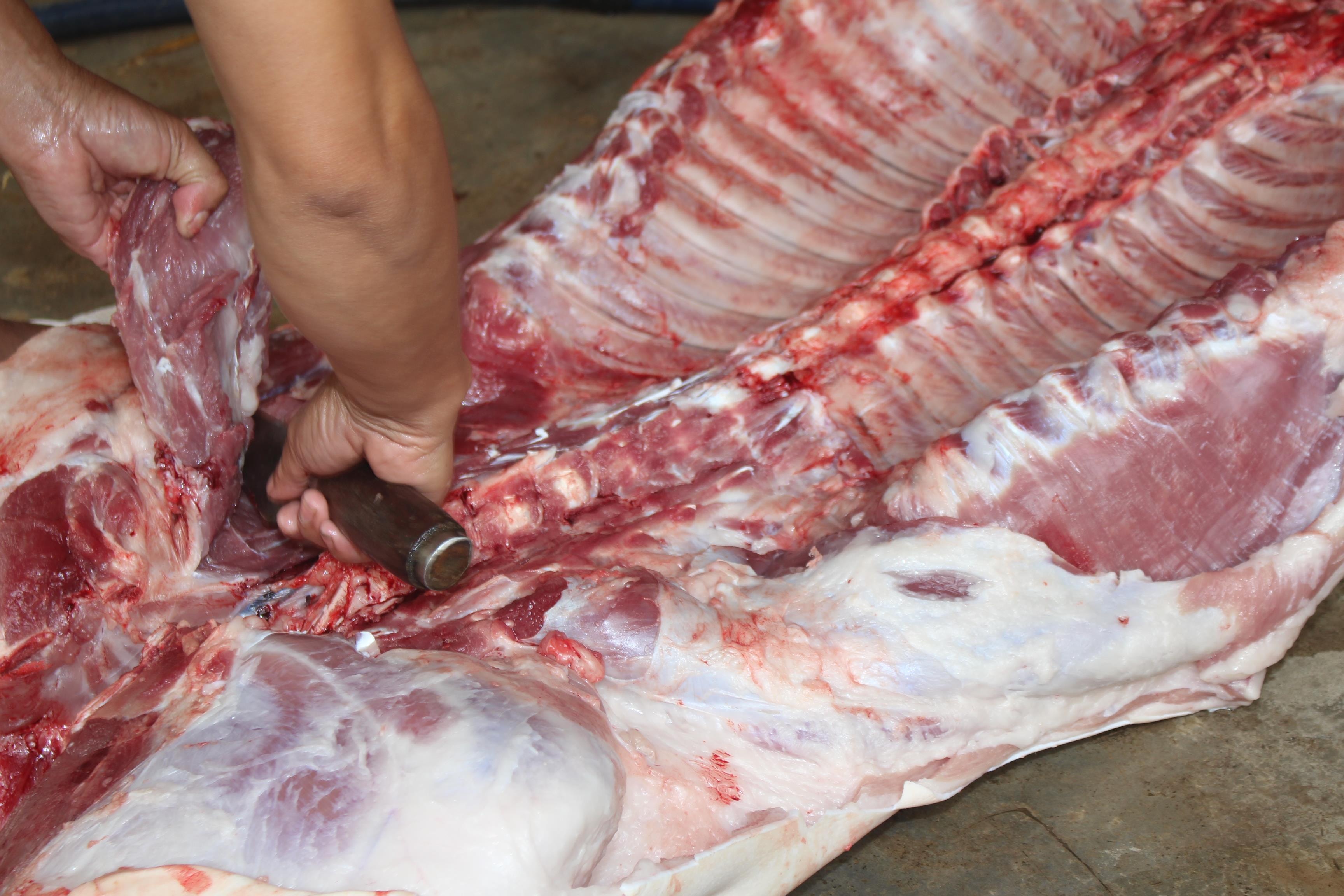 |
| Clean pork is chosen by people during the complicated African swine fever epidemic. Photo: Xuan Hoang. |
The people of the Xiangyang highlands are also wary of African swine fever these days. However, according to research, the price of live pigs in Xiangyang is still high at 50,000 VND/kg. The reason is that people are less interested in pigs from the lowlands, mainly slaughtering pigs raised by local people for meat.
Mr. Lo Van Tuan in Can village, Tam Thai commune (Tuong Duong) said: His family has raised a herd of 5 pigs for nearly 7 months now. Due to the African swine fever epidemic, 4 days ago he slaughtered a pig, and the villagers bought all the meat. In the coming days, he will slaughter more to serve clean food for the villagers to use.
Need to strengthen control of pig origin
The fact that people organize "clean pig touching" does not mean that they have turned their backs on pork sold in the market, but rather that people are worried about African swine fever.
However, consumers need to understand that African swine fever cannot be transmitted to humans, so they should not be afraid or boycott safe pork products.
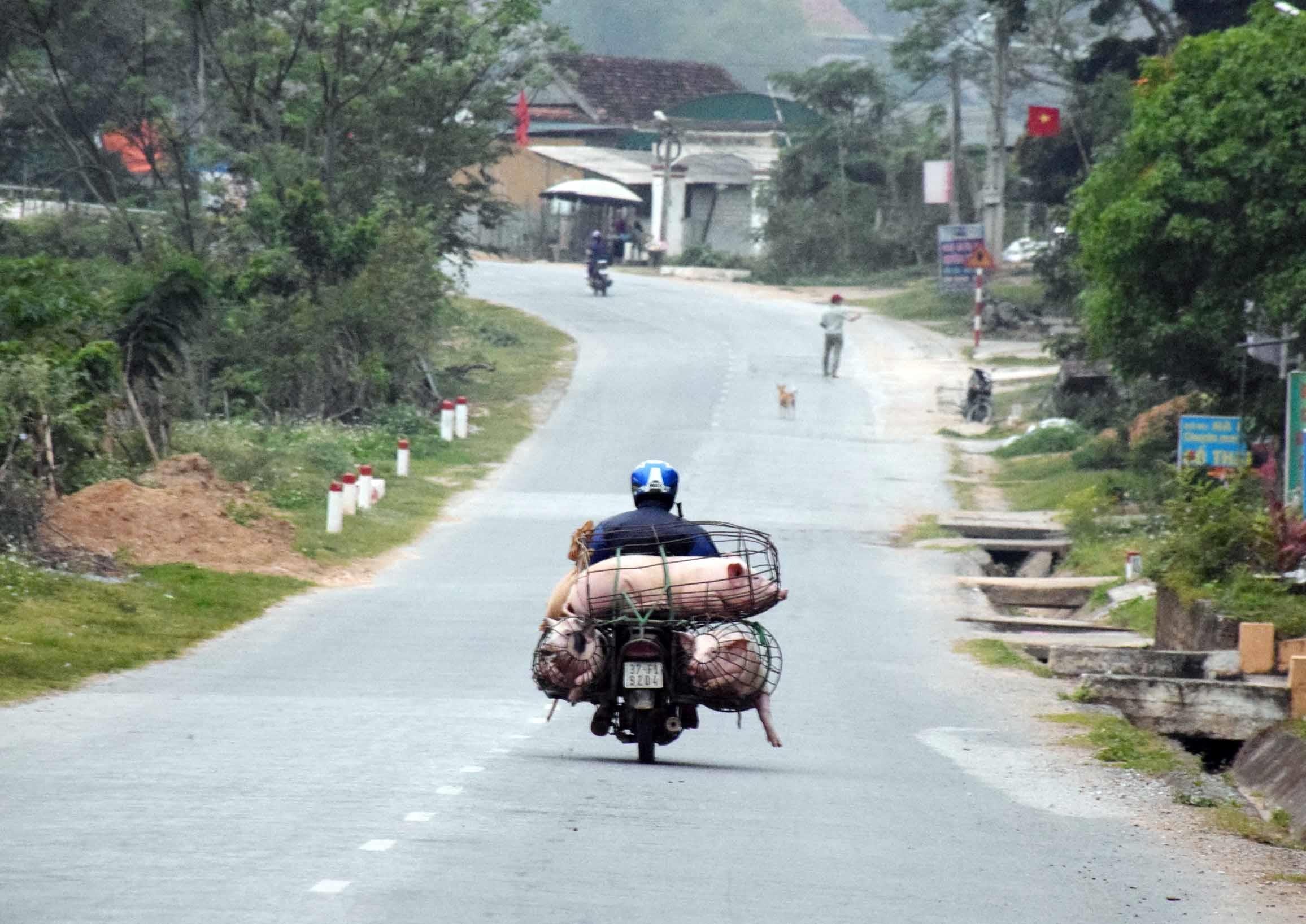 |
| Authorities need to strictly control the transportation of pigs in the province. Photo: Xuan Hoang |
The important thing now is that Nghe An authorities continue to strictly control the purchase, sale and transportation of pigs in and out of the area; strengthen inspection of slaughterhouse operations to ensure proper processes and procedures so that people can feel secure in using pork./.

.jpg)
.jpg)
